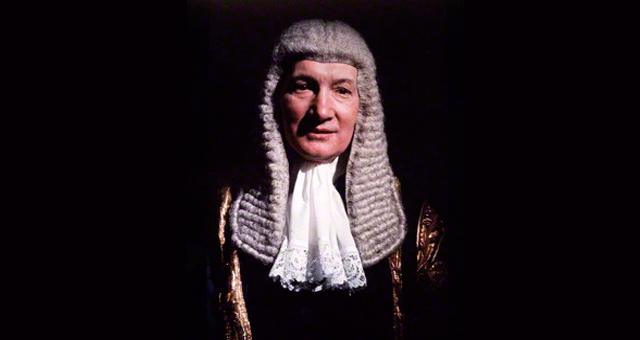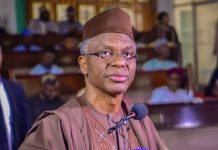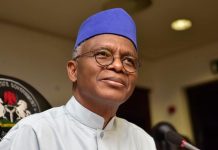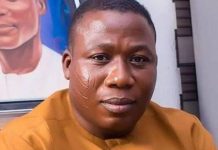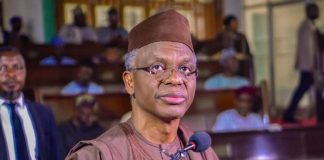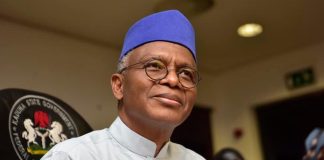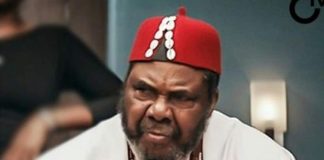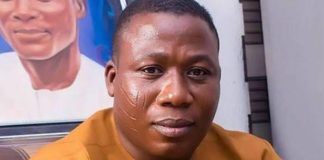🌿 Ruzu Non-Alcoholic Herbal Bitters
Ruzu Non-Alcoholic Herbal Bitters is a natural health supplement specially formulated to:
- ✅ Promote general wellness
- ✅ Detoxify the body
- ✅ Support the treatment of various ailments
Made from a powerful blend of 100% organic and medicinal herbs, Ruzu is completely alcohol-free, making it ideal for:
- 👪 All age groups
- 🌱 Health-conscious individuals
- 🌿 Anyone seeking non-alcoholic herbal remedies
Whether you're looking to boost your vitality, cleanse your system, or support healing the natural way, Ruzu Bitters offers a trusted herbal solution.
Therefore, it baffles me why the vast majority of the respondents’ attorneys in the deluge of petitions that followed the 2007 general elections, for instance, arrived in the Election Tribunals believing that the petitioners or plaintiffs needed to establish their cases beyond a reasonable doubt. Unfortunately, a large number of them found supporters in most tribunals, which is why the processes were drawn out and never ended. And the message has reached the politicians: go ahead and conspire with law enforcement and INEC to rig the system so that the opposition has the burden of proving its case beyond a reasonable doubt!
Furthermore, why would an Election Tribunal operate similarly to a Crime Tribunal? In accordance with Section 144 of the Electoral Act, 2022 [which is equivalent to Section 157 of the Electoral Act, 2006], a tribunal’s maximum authority regarding any established crime in an election suit is to recommend to INEC that “the Commission (INEC) shall consider any recommendation made to it by a tribunal with respect to the prosecution by it of any person for an offence disclosed in any election petition.”
By establishing the loophole that permits election petitions to run, effectively, indefinitely, the Supreme Court’s decision in Unongo v. Aper Aku has undoubtedly committed and sustained injustice in Nigeria! It has transferred electoral authority to the courts from the electorate. It has promoted political fraud, bribery, corruption, and electoral malpractice. Do-or-die politics have been promoted by it; rig first and win, let the other party go to court, and while the other party will battle from the valley no matter how long it takes, we will be in government and fight from the mountain! What more could an extra-constitutional ruling possibly be?
I’ll say it again: Nigerian courts are not empowered to permit election proceedings against the president or a sitting governor. The courts can only hear an election case before the candidate who was declared the winner by the Electoral Commission takes the oath of office as president or governor. For this reason, the Nigerian Constitution of 1979 or 1999 stipulates that only four circumstances can result in the resignation or death of a governor or president: (i) death, (ii) resignation, (iii) incapacitation, or (iv) impeachment.
Here is s.146 (1)(2) of the 1999 Constitution, which is basically the same as s.134 (1)(2) of the 1979 Constitution, for the avoidance of any doubt: 146. (1) If the President is removed from office for any cause under section 143 or 144 of this Constitution, including death, resignation, impeachment, permanent incapacity, or any other reason, the Vice-President will assume the President’s duties. (2) The Senate President will serve as President for a maximum of three months during which a new President will be elected to serve the remaining term of the previous occupant of the office if a vacancy arises in the circumstances listed in subsection (1) of this section during a time when the Vice-President position is also vacant. While s.144 addresses permanent disability, s.143 addresses impeachment. The emphasis is on the lengthy procedures involved in impeachment and lifelong incapacity, as opposed to death or resignation. The Nigerian constitution’s founders never considered removing the president or a serving governor due to a court-ruled nullification of the election.
“A governor or the president, by virtue of s.308 of the constitution, is not a compellable witness; he cannot be subpoenaed by any court in the land,” I stated in the opening section of this speech. However, the court has the authority to order any candidate, even the president-elect or the governor-elect, to appear at an election. Additionally, I noted that “subsections 5 to 8 inserted into s.285 of the 1999 Constitution following the 2010 constitutional amendment exercise are in utter conflict with s.191, s.146, and s.308(1a), and run contrary to the intention of the document’s framers.” The president’s or state governor’s term cannot be extended by election petition proceedings. Consequently, the judiciary should invalidate subsections 5 to 8 of s.285 since they are against natural justice, common sense, and the framers’ intent.
The Supreme Court must go in the opposite direction. Since the court in Unongo v. Aper Aku (1983) acted outside the constitution, we cannot even claim that the court made a legal error. At this point, however, we need pay attention to what the Lord Chancellor said when the British House of Lords decided in 1966 to eliminate the absolute binding power of their own verdicts on legal matters, even if we accept that the highest court only made mistakes in the law.
Their Lordships believe that precedent is a crucial basis for determining the law and how it applies to specific situations. It offers a foundation for the orderly development of legal regulations as well as a certain level of certainty that people can rely on when conducting their affairs. However, Their Lordships acknowledge that a too rigorous regard to precedent can both unnecessarily impede the healthy development of the law and result in unfairness in a given case. Thus, they intend to change their current procedure and, although they consider earlier rulings of this House to be generally binding, to deviate from a prior ruling where it is appropriate to do so. This announcement isn’t meant to change how precedent is used outside of this House.
To reverse itself intra-judicially, the Nigerian Supreme Court must now take advantage of the first chance presented by the forelock.
Read Also: Tragedy in Jigawa: Nine Bodies Recovered, Survivors Rescued After Boat Mishap
What is the exit? According to s.233(5) of the 1999 Constitution, any Nigerian citizen or fellow countryman with an interest in this issue may request permission from the Supreme Court to join any election petition involving the president or any governor if and when the case reaches the highest court. The Supreme Court will be asked in the application to stop, dismiss, or halt legal action against the president or a governor for lack of jurisdiction.
In The Discipline of Law, the late Master of the Rolls, the renowned Lord Denning, provides guidance on the topic of locus standi, which will unavoidably come up upon such an application by any concerned citizen or other person with an interest in the matter: “The court will not listen to a busybody who is interfering in things which do not concern him, but it will listen to an ordinary citizen who comes asking that the law should be declared and enforced, even though he is only one of a hundred, one of a thousand, or one of a million who are affected by it.” Therefore, it can be claimed that the new procedure has given us in England an actio popularis that allows an average citizen to uphold the law for the good of all.
Let’s say that there is an actio popularis in Nigeria. The Supreme Court of Nigeria shouldn’t keep making mistakes. In Adegoke Motors vs. Adesanya, [1989] 13 NWLR, pt.109, 250, page 275, the late Justice Chukwudifu Oputa said, “We are final not because we are infallible; rather, we are infallible because we are final.” This Court’s justices are fallible human beings. It would undoubtedly be shortsighted hubris to deny this reality. It is also true that this Court’s intelligent decisions have the potential to accomplish immeasurable good. Likewise, the Court’s errors have the potential to cause irreversible injury. Therefore, when knowledgeable counsel feels that a decision of this Court has been rendered per incuriam, they should have the guts and bravery to request that the decision be overturned. This Court has the authority to overrule itself, and it has done so in the past because it firmly believes that acknowledging a mistake is preferable to continuing in the wrong.
How much extra latitude of five months is allowed by s.178(2) or s.132(2) of the 1999 Constitution, as amended, which stipulate that a governorship or presidential election may be held 150 days prior to the swearing-in date, if the 1979 election issue could be resolved in less than two months?

